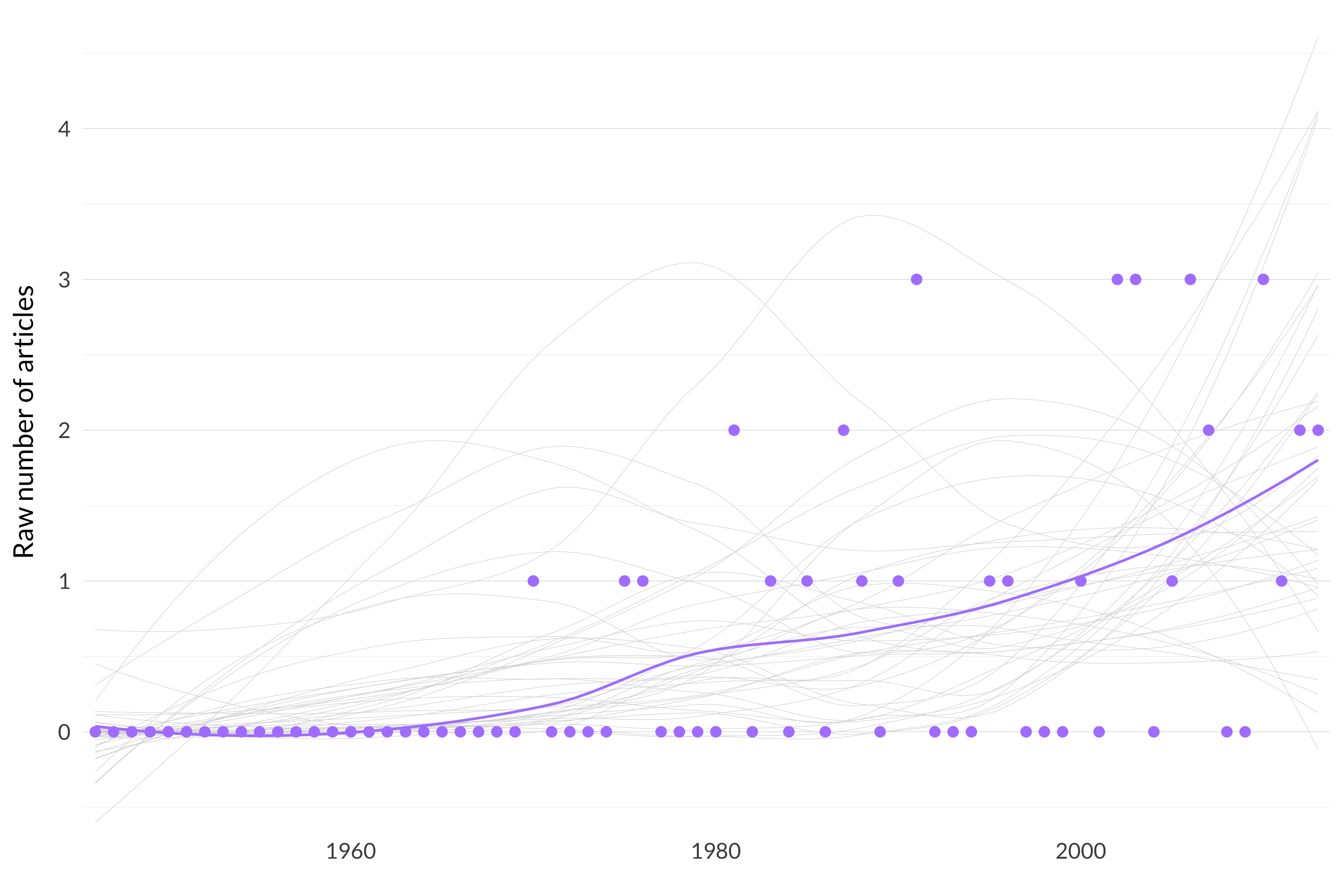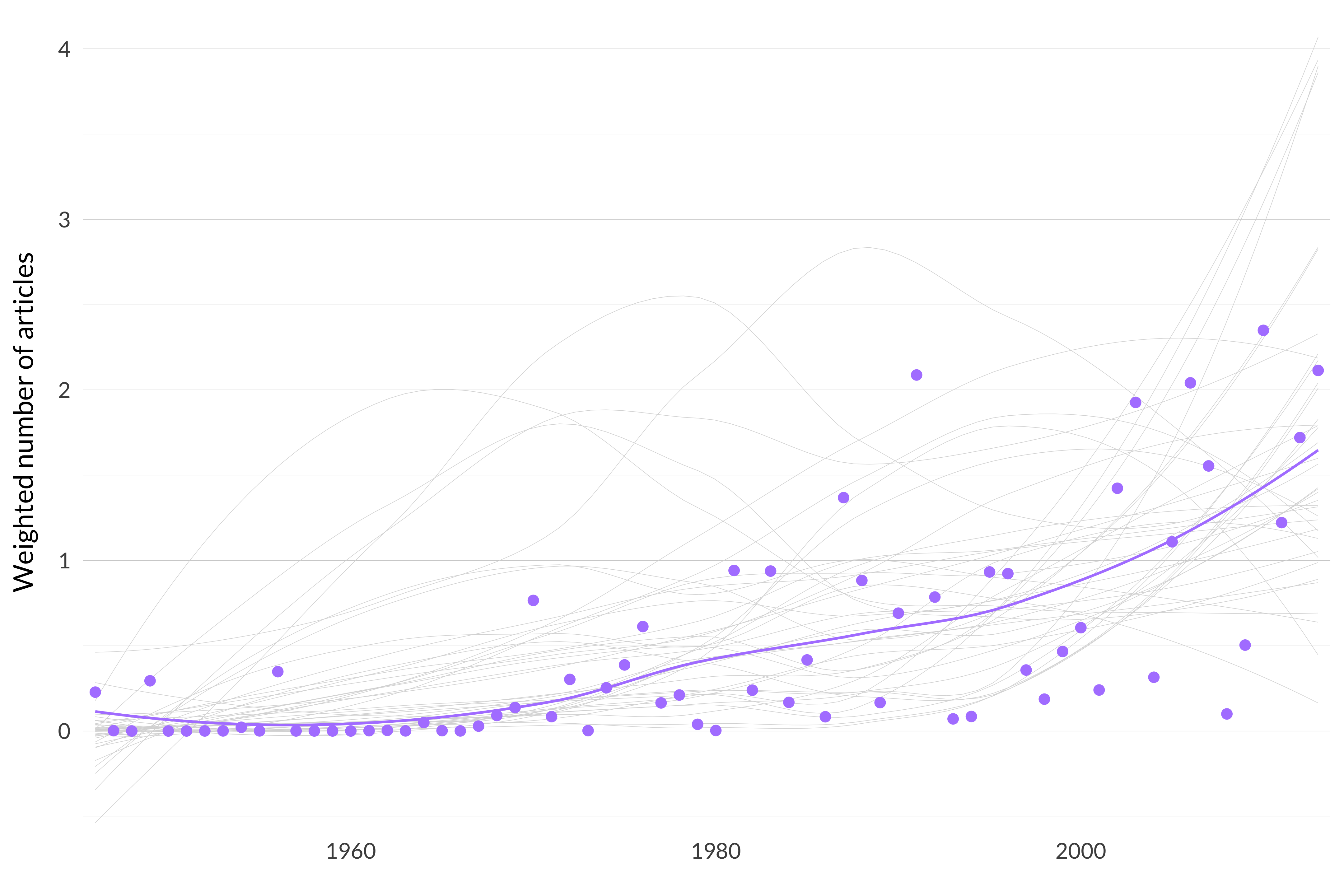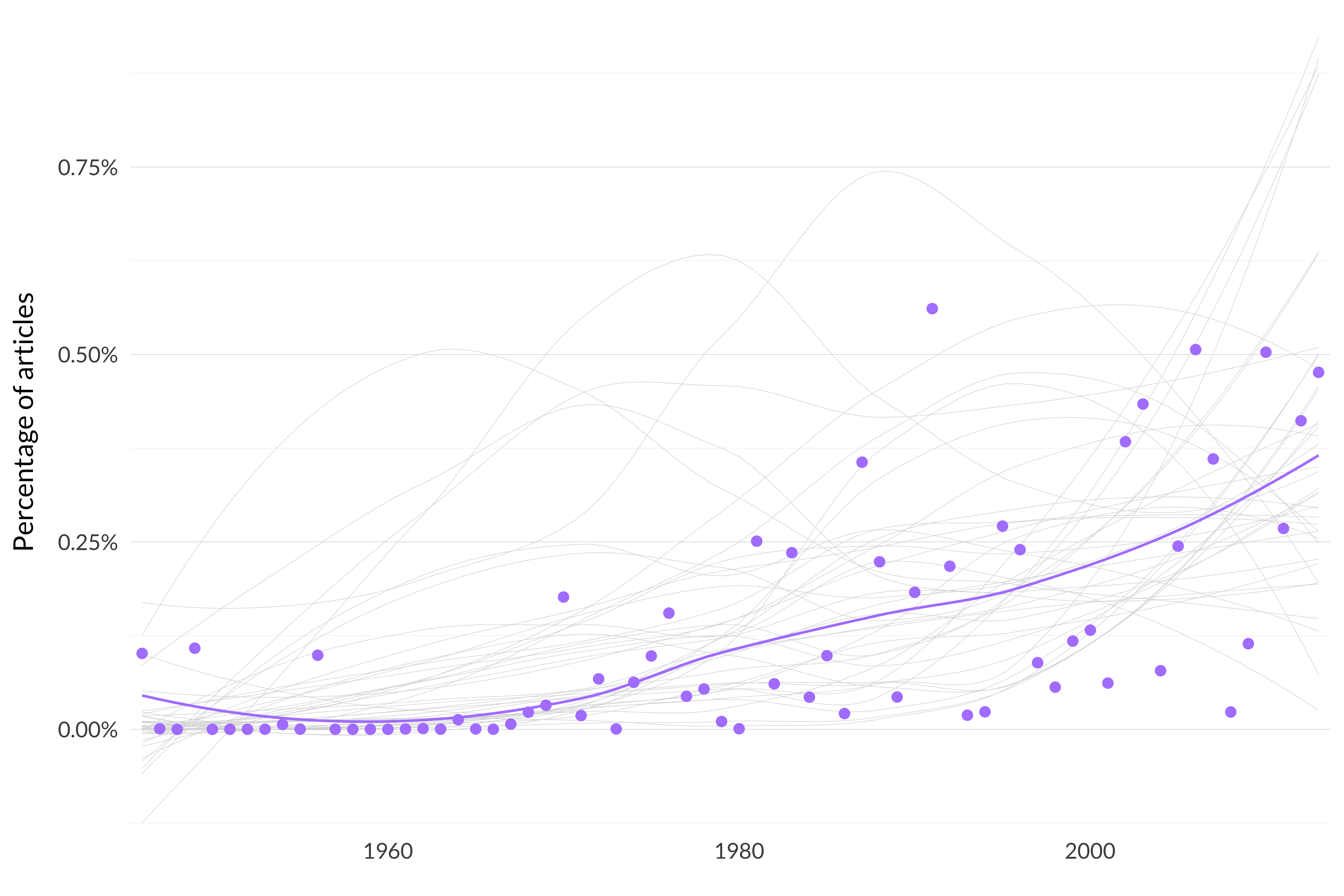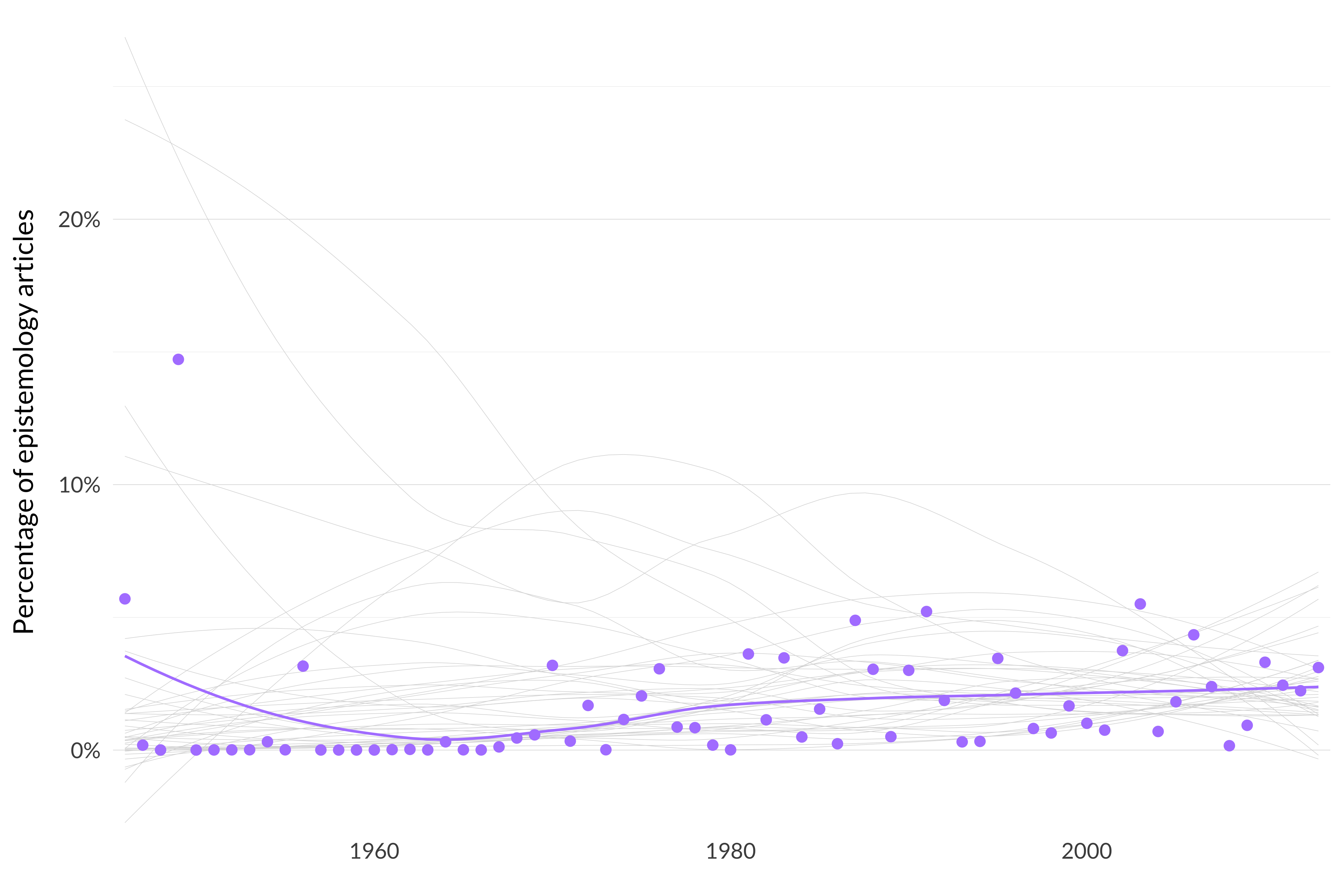6.30 Epistemic Value
Keywords: goals, goal, god, plantinga, value, aim, properly, consequences, theories, proper, life, epistemology, ethical, cognitive, epistemically
Number of articles: 37
Weighted number of articles: 35.01066

Figure 6.125: Raw number of articles in topic 30, epistemic value.

Figure 6.126: Weighted number of articles in topic 30, epistemic value.

Figure 6.127: Percentage of philosophy articles in topic 30, epistemic value.

Figure 6.128: Percentage of epistemology articles in topic 30, epistemic value.
Characteristic Articles
- Michael Bishop and J. D. Trout, 2005, “The Pathologies of Standard Analytic Epistemology,” Noûs 39:696–714.
- Michael Ridge, 2013, “Getting Lost on the Road to Larissa,” Noûs 47:181–201.
- Evan Fales, 1996, “Plantinga’s Case Against Naturalistic Epistemology,” Philosophy of Science 63:432–51.
- Jeff Jordan, 2006, “Does Skeptical Theism Lead to Moral Skepticism?,” Philosophy and Phenomenological Research 72:403–17.
- Hilary Putnam, 1991, “Philosophical Reminiscences with Reflections on Firth’s Work,” Philosophy and Phenomenological Research 51:143–7.
- Jason Baehr, 2012, “Credit Theories and the Value of Knowledge,” The Philosophical Quarterly 62:1–22.
- Stephen Maitzen, 1995, “Our Errant Epistemic Aim,” Philosophy and Phenomenological Research 55:869–76.
- Wayne D. Riggs, 2003, “Balancing Our Epistemic Goals,” Noûs 37:342–52.
- Roberta Cutler Klein, 1987, “Are We Morally Obligated to be Intellectually Responsible?,” Philosophy and Phenomenological Research 48:79–92.
- Selim Berker, 2013, “Epistemic Teleology and the Separateness of Propositions,” Philosophical Review 122:337–93.
Highly Cited Articles
- Thomas Kelly, 2003, “Epistemic Rationality as Instrumental Rationality: A Critique,” Philosophy and Phenomenological Research 66:612–40. (0.6560862)
- Alvin Plantinga, 1981, “Is Belief in God Properly Basic?,” Noûs 15:41–51. (0.5051732)
- Wayne D. Riggs, 2002, “Reliability and the Value of Knowledge,” Philosophy and Phenomenological Research 64:79–96. (0.6661079)